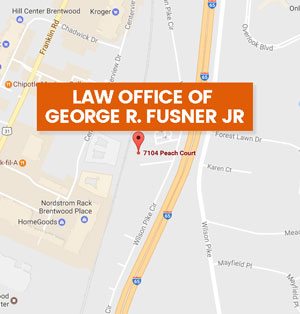When a car wreck has left you disabled and unable to work, you may be in need of financial support as you no longer have a steady income coming in. While most of the accident victims who qualify to file a personal injury lawsuit against the party who hit them recover compensation after reaching a successful in their case, others often look for other sources that are available that can provide them with the financial assistance they are seeking. One of those sources is the Social Security Administration (SSA).
Social Security Disability (SSD) is usually available to someone who has suffered a total disability meaning,
- They cannot complete the work that they once were able to;
- They are unable to adjust to other work because of their medical condition; and
- Their disability has lasted a year or is expected to last for at least one year.
All three criteria must be met in order for an individual to qualify for Social Security Disability. In the event you are looking for partial disability or short-term disability, the SSA will not provide this to you. Aside from the criteria listed above, the SSA will use the following to decide if your circumstances would, in fact, consider you a qualified applicant for SSD.
- Whether you are working. If you are working, the SSA may find you unqualified to receive SSD. You will need to contact the SSA to find out how much you can make per month to still be eligible to apply for SSD.
- In the event you are not working, the SSA will then check to see if your condition is considered to be “severe.” This means that “your condition must significantly limit your ability to do basic work such as lifting, standing, walking, sitting, and remembering—for at least 12 months.”
- Should your condition be considered “severe,” the SSA will look to see if it is found on its list of disabling conditions. For example, if you suffered a back injury in the wreck which caused new conditions to develop or a pre-existing condition to worsen, you would need to prove you suffer from one of the following:
- “Evidence of nerve root compression characterized by neuro-anatomic distribution of pain, limitation of motion of the spine, motor loss (atrophy with associated muscle weakness or muscle weakness) accompanied by sensory or reflex loss and, if there is involvement of the lower back, positive straight-leg raising test (sitting and supine).”
- “Spinal arachnoiditis,” which has been confirmed by having an “operative note or pathology report of tissue biopsy, or by appropriate medically acceptable imaging, manifested by severe burning or painful dysesthesia, resulting in the need for changes in position or posture more than once every 2 hours.”
- “Lumbar spinal stenosis resulting in pseudoclaudication, established by findings on appropriate medically acceptable imaging, manifested by chronic nonradicular pain and weakness, and resulting in inability to ambulate effectively.”
[Source: Listing 1.04 Disorders of the spine].
In the event your condition is not found on the list of disabling conditions, the SSA will have to decide whether “it is as severe as a medical condition that is on the list.” In the event it is, then you shall be considered disabled.
- After receiving confirmation that your condition considers you disabled, the SSA will determine whether “your medical impairment prevents you from performing any of your past work.”
- The last step the SSA will take to determine your eligibility is to decide whether you can do any other type of work. The SSA will consider “your medical conditions, age, education, past work experience, and the transferable skills, you have to determine if you are able to do any other type of work.
The SSA will then take all the information that was gathered, evaluate it, and decide if it qualifies you to collect SSD. Something you should be aware of when looking to obtain SSD is that it can be a rather difficult and lengthy process. The SSA does not approve everyone who has suffered an injury that has caused them to become disabled to collect SSD so, in order to increase your chances of being granted this financial support, you should have an experienced Nashville, TN car wreck lawyer helping you. If you would like to speak with a TN car wreck attorney now who can further elaborate on SSD along with the other ways you can recover the funds you might be needing, contact the Law Office of George R. Fusner Jr. now.




